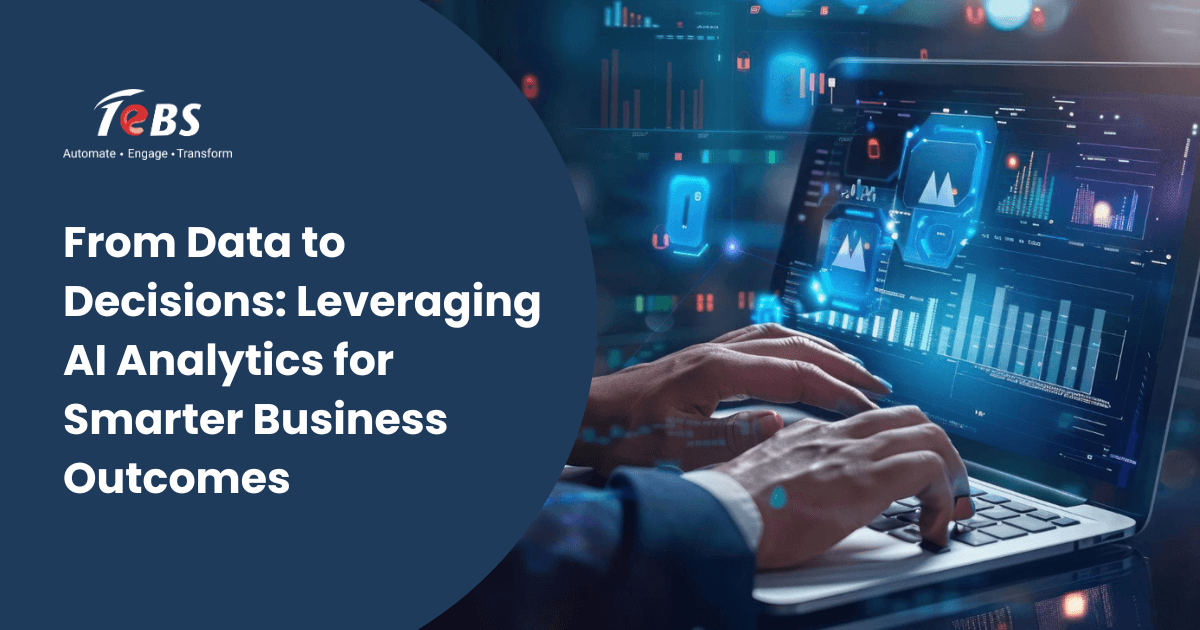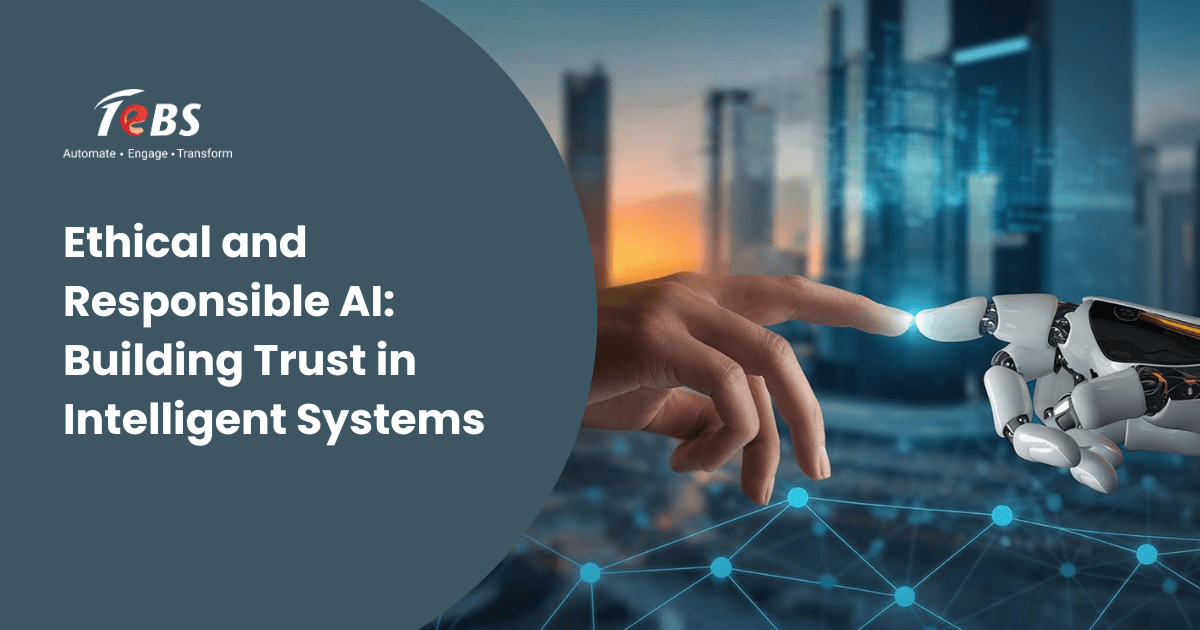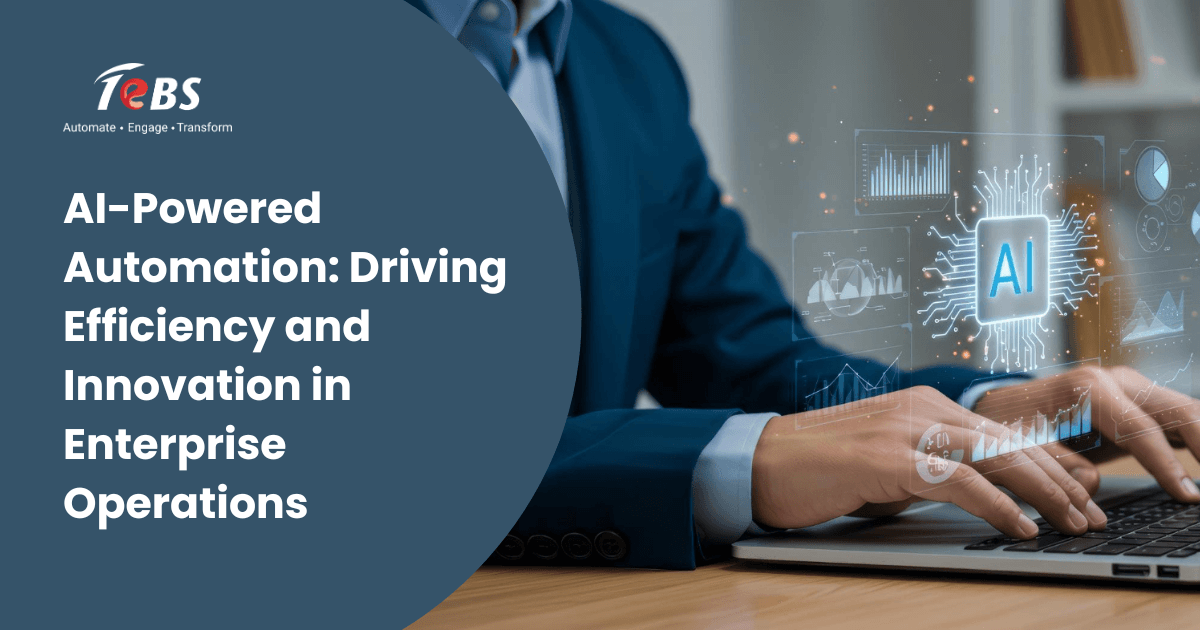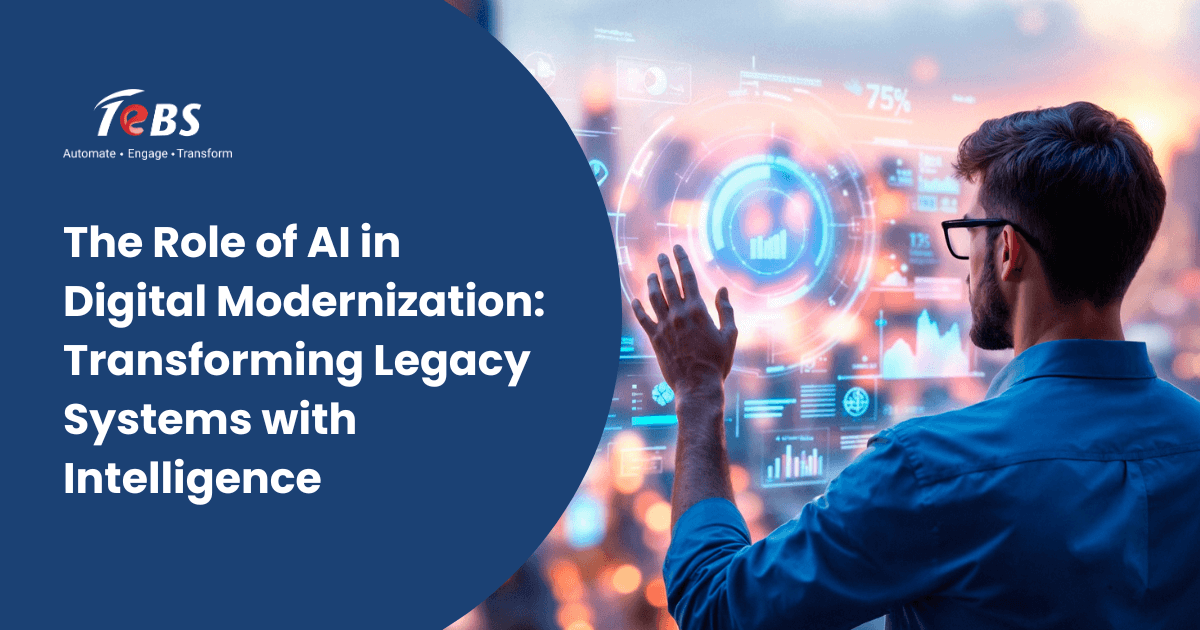Summary
AI is transforming data management by automating classification, cleansing, governance, and analytics. It improves data quality, boosts efficiency, reduces costs, and enables real-time decision-making across industries like healthcare, finance, retail, and manufacturing. Future trends such as generative AI, edge AI, and explainable AI will make data systems smarter, scalable, and more transparent. Businesses adopting AI-driven data management gain agility, security, and a competitive edge.
AI is transforming data management by automating classification, cleansing, governance, and analytics. It improves data quality, boosts efficiency, reduces costs, and enables real-time decision-making across industries like healthcare, finance, retail, and manufacturing. Future trends such as generative AI, edge AI, and explainable AI will make data systems smarter, scalable, and more transparent. Businesses adopting AI-driven data management gain agility, security, and a competitive edge.
Data is the cornerstone of strategic decision-making, innovation, and business agility. Yet, as organizations generate and accumulate data at an unprecedented scale, managing this growing volume of information effectively has become a significant challenge. Artificial Intelligence (AI) is stepping in as a transformative force, offering smart, scalable solutions to optimize data management processes. AI not only automates routine tasks but also introduces intelligence into data handling—unlocking insights, improving data quality, and enhancing operational efficiency.
Introduction to AI’s Impact on Data Management
The traditional approach to data management often involves manual processing, siloed databases, and time-consuming integration efforts. These outdated practices fall short in the face of big data, real-time analytics, and compliance requirements. AI transforms this landscape by bringing automation, contextual understanding, and learning capabilities to the data lifecycle.
From ingestion and classification to cleansing and visualization, AI technologies—such as machine learning (ML), natural language processing (NLP), and generative AI for data transformation—are redefining how organizations store, manage, and utilize data. By continuously learning from patterns and anomalies, AI service systems make data more accessible, actionable, and relevant to business objectives.
Core Features of AI in Data Handling
AI-powered data management is built on a foundation of intelligent capabilities that enable systems to self-optimize, adapt, and scale. Some of the core features include:1. Automated Data Classification and Tagging
AI can identify data types, categorize them based on content and context, and tag them appropriately for faster retrieval. This reduces the burden on IT teams and ensures consistent metadata application.2. Data Quality Management
Machine learning algorithms can detect inconsistencies, duplicates, missing values, and outliers in datasets. AI models can automatically cleanse and enrich data, improving accuracy and reliability. As Microsoft highlights in its article on transforming our data culture with AI-ready data, building AI-ready data requires strong governance, trusted sources, and robust data practices to maximize business value.3. Natural Language Search and Query
With NLP, users can interact with data systems using conversational queries instead of relying on complex SQL or technical commands. This democratizes data access across departments.4. Real-Time Data Processing
AI enables real-time analysis and decision-making by processing data streams instantly. This is crucial for applications in fraud detection, supply chain monitoring, and customer experience optimization.5. Predictive and Prescriptive Analytics
AI models can identify trends, forecast outcomes, and even recommend actions. These insights help businesses stay proactive rather than reactive.6. Data Governance and Compliance
AI tools can monitor data usage, detect policy violations, and assist in meeting regulatory requirements like GDPR or HIPAA through automated audit trails and risk alerts.Benefits of AI-Driven Data Management
The integration of AI into data management strategies brings a wide array of business and operational benefits:1. Improved Decision-Making
AI-driven insights help stakeholders make faster, more informed decisions by eliminating guesswork and providing real-time visibility into trends and performance metrics. Businesses can leverage ai for data analytics to strengthen reporting and decision-making.2. Cost Efficiency
By automating manual data tasks and reducing data redundancies, AI cuts down on operational costs and resource overheads.3. Scalability and Flexibility
AI systems are designed to handle complex, high-volume datasets. Whether it’s a growing customer base or expanding market, AI ensures data systems remain agile and responsive. Our Enabling Operational Excellence with AI-Powered Digital Transformation case study shows how AI integration improved enterprise-wide data workflows, reduced operational costs, and enabled scalable, future-ready systems.4. Enhanced Data Security
AI can identify suspicious access patterns or data breaches in real-time, helping organizations respond promptly to security threats.5. Reduced Human Error
Automated data processing minimizes the risk of errors in data entry, classification, or transformation—boosting the credibility of business intelligence outputs.6. Faster Time to Insight
With AI, the time taken to go from raw data to actionable insight is dramatically reduced. This empowers teams to act quickly in dynamic market environments.Real-World Applications of AI in Industries
Across various industries, AI is revolutionizing data management practices and delivering tangible value:1. Healthcare
Hospitals and medical research centers are using AI to manage electronic health records (EHRs), predict disease outbreaks, and personalize treatment plans. AI algorithms help clean unstructured clinical data and extract meaningful insights for diagnosis and care optimization.2. Financial Services
In banking and insurance, AI enhances data governance, automates compliance checks, and powers fraud detection systems. Predictive analytics help assess credit risk and personalize investment portfolios for clients.3. Retail and E-commerce
Retailers leverage AI to track customer behavior, optimize inventory, and personalize product recommendations. AI-driven data analytics help improve customer satisfaction and sales conversions.4. Manufacturing
AI applications in manufacturing include supply chain optimization, predictive maintenance, and quality control. Real-time data from IoT sensors is processed by AI models to anticipate equipment failures and reduce downtime.5. Public Sector
Government agencies are modernizing their legacy data systems using AI to ensure data accuracy, streamline citizen services, and enhance decision-making for policy development.6. Education
Educational institutions use AI for managing student data, analyzing learning outcomes, and personalizing educational content. AI also supports administrative tasks such as enrollment and compliance reporting.Future Trends in AI and Data Management
The intersection of AI and data management continues to evolve, offering new possibilities for businesses aiming to become data-driven. According to Gartner’s latest insights on data and analytics, businesses adopting AI-augmented data strategies are positioned for significant growth.
1. AI-Augmented Data Fabric
An AI-augmented data fabric provides a unified architecture that connects disparate data sources and automates data integration. It enables a holistic, real-time view of enterprise data.
2. Self-Service Data Platforms
As AI tools become more user-friendly, business users—not just data scientists—will be empowered to access, analyze, and act on data independently, accelerating innovation across teams.
3. Generative AI for Data Transformation
Generative AI is being increasingly used to synthesize new data, simulate business scenarios, and create synthetic datasets for model training—all while maintaining privacy and compliance.
4. AI-Powered Data Stewardship
AI will take a more active role in enforcing data policies, ensuring ethical use, and reducing biases in datasets—critical for organizations dealing with sensitive or regulated data.
5. Edge AI for Decentralized Data Processing
With the rise of IoT, data is increasingly generated at the edge. Edge AI enables local data processing on devices, reducing latency and reliance on cloud infrastructure for real-time decision-making.
6. Explainable AI (XAI) in Data Governance
To build trust in automated decisions, future AI systems will incorporate explainability—providing transparent insights into how data-driven decisions are made.
Conclusion
AI is not just an enhancement to existing data management systems—it is a catalyst for intelligent, autonomous, and future-ready data ecosystems. Organizations that embrace AI in their data strategies gain a significant competitive edge by unlocking actionable insights, ensuring data quality, and accelerating digital transformation.
Whether you’re in finance, healthcare, retail, or the public sector, integrating AI into your data management framework can help you move from reactive operations to proactive innovation. Explore how TeBS offers AI Services in Singapore for data management solutions to help your organization harness next-generation intelligence.
Explore how Total eBiz Solutions can help your organization harness AI-powered data management to transform your business. For tailored solutions or a consultation, reach out to [email protected].
Frequently Asked Questions (FAQ)
What is the role of AI in data management?
AI automates classification, cleansing, governance, and analytics to improve data quality, speed, and security. TeBS applies AI to help enterprises unlock real-time insights, streamline operations, and scale data management effectively.
How does TeBS use AI to transform enterprise data management processes?
TeBS integrates AI for automated data classification, anomaly detection, predictive analytics, and compliance monitoring—enabling organizations to make faster, data-driven decisions while reducing costs and risks.
What is the AI-driven data management framework followed by TeBS?
Our framework covers the full lifecycle: data ingestion, cleansing, classification, governance, analytics, and continuous monitoring. AI models are embedded to ensure accuracy, scalability, and compliance with global standards.
How can TeBS apply AI to improve traffic and infrastructure data management?
TeBS leverages AI to process IoT and sensor data for real-time traffic monitoring, predictive maintenance of infrastructure, and optimization of public services—helping cities and enterprises build smarter, more resilient systems.
How does TeBS ensure AI improves data quality and governance for businesses?
By using machine learning for data cleansing, anomaly detection, and enrichment, and applying AI-powered governance tools for policy enforcement and regulatory compliance, TeBS ensures data remains accurate, secure, and trusted.
What future trends in AI-driven data management does TeBS help organizations adopt?
TeBS enables enterprises to adopt emerging practices like generative AI for data transformation, explainable AI for governance, edge AI for real-time processing, and AI-augmented data fabrics for unified data visibility.





